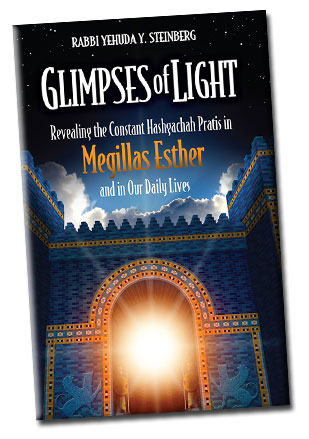What Money Cannot Buy
“If it pleases the king, let a decree be written to annihilate them, and I will pay ten thousand kikar of silver to those in charge of the king's business, to bring it into the king's treasuries.” (Esther 3:9)
Ten thousand kikar of silver. It is interesting to calculate how much money in today’s currency Haman was willing to pay to destroy Klal Yisrael. The weight of ten thousand kikar of silver can be calculated as follows: A shekel of silver weighs 15.35 gram (.54 oz). A kikar is comprised of three thousand shekels. So ten thousand kikar is 10,000 times 3000 times 15.35 gram. This is approximately 460 ton of silver. Though the value of silver keeps changing, today one kilogram of silver is worth approximately one thousand dollars, therefore one ton is worth about one million. This would mean that Haman was ready to pay about half-a-billion dollars. However, it is clear that since the time of the Purim story, the buying power of silver has changed dramatically. In those days, a person could meet all his basic needs for a whole year with just fifty shekel, which is approximately $750 in today's value. Obviously today, one needs at least ten times as much to pay for all of one’s expenses for a year. Accordingly, in today's value, Haman was willing to pay about five billion dollars — an astronomical sum by any account — to have Klal Yisrael killed. Haman was the wealthiest non-Jew in history, and he was able to pay such a huge sum for the purpose of killing Klal Yisrael. Even though wicked people have a tremendous desire for money, his hatred for Klal Yisrael was so great that he was able to overcome his greed in exchange for the opportunity to destroy them. Haman offered Achashverosh such an exorbitant sum because he was asking to kill out a whole nation. He knew that just the profit from taxes from a whole nation in the course of one generation can be expected to reach, at the very minimum, billions of dollars. Therefore, to compensate Achashverosh, he offered to pay for the potential losses.
The knowledge of how wealthy Haman was and how much he was willing to spend for his diabolical plot strengthens the wonder of the miracle. Even though wealth is power and with money one can do many things, and even though Achasheverosh the powerful king agreed with the plot; nevertheless, through natural events — all Divinely ordained — the plot fails.
Achashverosh, who was no less greedy than Haman, refused to accept this astronomical sum of money. Since he too was a Jew-hater, he was concerned that if Haman would part with so much money, this might dampen his enthusiasm for destroying Klal Yisrael, and Achashverosh didn’t want this to happen. This can be compared, l’havdil, to a speaker who is offered a huge sum of money to deliver a lecture to a crowd of irreligious Jews who are interested in learning more about Torah and mitzvahs. The speaker may offer to speak for free because he is so happy to take part in the kiruv organization’s blessed activities. If he would charge a large sum, then the burden of running that important project may become too heavy and the organizers may lose interest in keeping it going. Similarly, in the worse manner possible, Achashverosh felt that this project, i.e., killing out Klal Yisrael, was so wonderful that he wished to do it for free, so that Haman would not be hesitant about carrying it out. When we learn how wicked they were and how much they wished to carry out this evil decree, we have a better understanding of how great the miracle was.
Later on, when Achashverosh became suspicious of Haman, as will be explained later, he had nothing to lose by falling out with him. Had Achashverosh accepted the money, then even when his feeling toward Haman became negative, his desire to hold on to the money would not have allowed him to cut ties with him completely. If he decided to overturn the decree, he may have even been obligated to return the money, some thing that no one ever wants to do. Furthermore, we know that once one has been bought by even much smaller favors, it is extremely difficult for him to find fault with the one who has given him the gift. Achashverosh’s enthusiasm at the beginning which caused him not to take the money, was part of the very undoing at the end. Once he became angry with Haman, he had no ulterior or financial motive to keep the plot going. Again, we see the miraculous ways of HaShem even in Achashverosh's enthusiasm for sinning.







 Buy The Book
Buy The Book